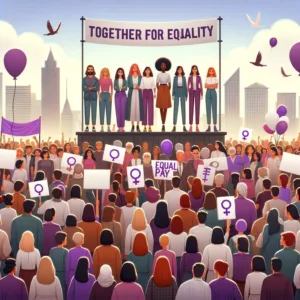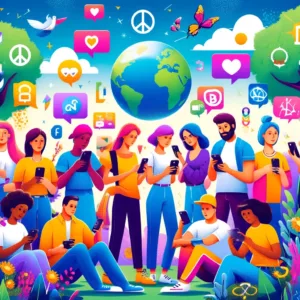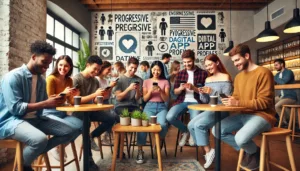The Impact of Dating Apps on Mental Health can be real. In recent years, dating apps have revolutionized the way we meet and connect with potential romantic partners. With a simple swipe or tap, we can access a vast pool of potential matches, making it easier than ever to find love or companionship. However, while these platforms offer convenience and opportunities, it’s essential to acknowledge the potential impact they can have on our mental health. In this blog post, we will explore how dating apps can affect mental well-being and provide tips on navigating the digital dating landscape while prioritizing mental health.
- Heightened Rejection Sensitivity:
Dating apps introduce a unique dynamic of rejection and validation. Constantly swiping, messaging, and waiting for responses can lead to heightened sensitivity to rejection. Receiving few matches or engaging in unfulfilling conversations can leave individuals feeling rejected or unattractive, impacting their self-esteem and overall well-being. - Comparison and Self-esteem:
The curated nature of dating app profiles often leads to comparisons. Users may find themselves comparing their own lives, appearances, or achievements to others, leading to feelings of inadequacy. This constant evaluation can erode self-esteem and contribute to a negative self-image. - Ghosting and Disconnection:
Ghosting, the act of abruptly ceasing communication without explanation, is prevalent in the realm of online dating. Being ghosted can leave individuals feeling rejected, confused, and anxious. The ease with which connections can be made and broken on dating apps can contribute to a sense of disconnection and emotional instability. - Decision Paralysis:
The paradox of choice is a well-known phenomenon that can affect dating app users. With an abundance of potential matches, users may experience decision paralysis, fearing they might miss out on someone better if they settle for one person. This fear of missing out (FOMO) can lead to constant swiping and a perpetual state of dissatisfaction, negatively impacting mental well-being. - Addiction and Obsession:
The gamified nature of dating apps, with their swiping mechanics and instant gratification, can trigger addictive behaviors. The constant pursuit of matches, messages, and validation can lead to obsessive thinking and excessive time spent on these platforms, potentially interfering with daily life and overall mental health.
Navigating the Digital Dating Landscape:
While dating apps can pose challenges to mental health, it’s essential to remember that they are merely tools, and their impact depends on how we use them. Here are some tips for maintaining mental well-being while engaging with dating apps:
- Self-awareness and Boundaries:
Maintain a strong sense of self-awareness. Set limits on the amount of time spent on dating apps and establish boundaries to protect your mental well-being. Take breaks when needed and prioritize self-care. - Embrace Authenticity:
Be genuine and authentic when creating your profile. Focus on portraying yourself accurately and resist the temptation to conform to societal pressures or unrealistic expectations. Seek connections that appreciate you for who you truly are. - Manage Expectations:
Approach dating apps with realistic expectations. Understand that not every match will lead to a meaningful connection, and rejection is a part of the process. Avoid defining your self-worth solely based on the response you receive on these platforms. - Prioritize Offline Connections:
Balance your online dating experiences with meaningful offline connections. Engage in activities and hobbies that allow you to meet people naturally. This can help reduce the pressure and reliance on dating apps as the sole source of romantic possibilities. - Seek Support:
If you find that dating apps are negatively impacting your mental health, don’t hesitate to seek support from friends, family, or mental health professionals. Talking about your experiences and emotions can provide valuable perspective and guidance.
Conclusion:
Dating apps have undoubtedly changed the way we approach relationships, offering both opportunities and challenges. While they provide a convenient platform to meet potential partners, it’s crucial to be aware of their potential impact on mental health. By prioritizing self-care, setting boundaries, managing expectations, seeking offline connections, and seeking support when needed, we can navigate the digital dating landscape while safeguarding our mental well-being. Remember, dating apps are just one avenue for finding love, and it’s essential to prioritize our mental health above all else as we seek meaningful connections in the modern age.
Remember, your mental health matters, both on and offline.
Don’t forget to follow Lefty on our social media

















